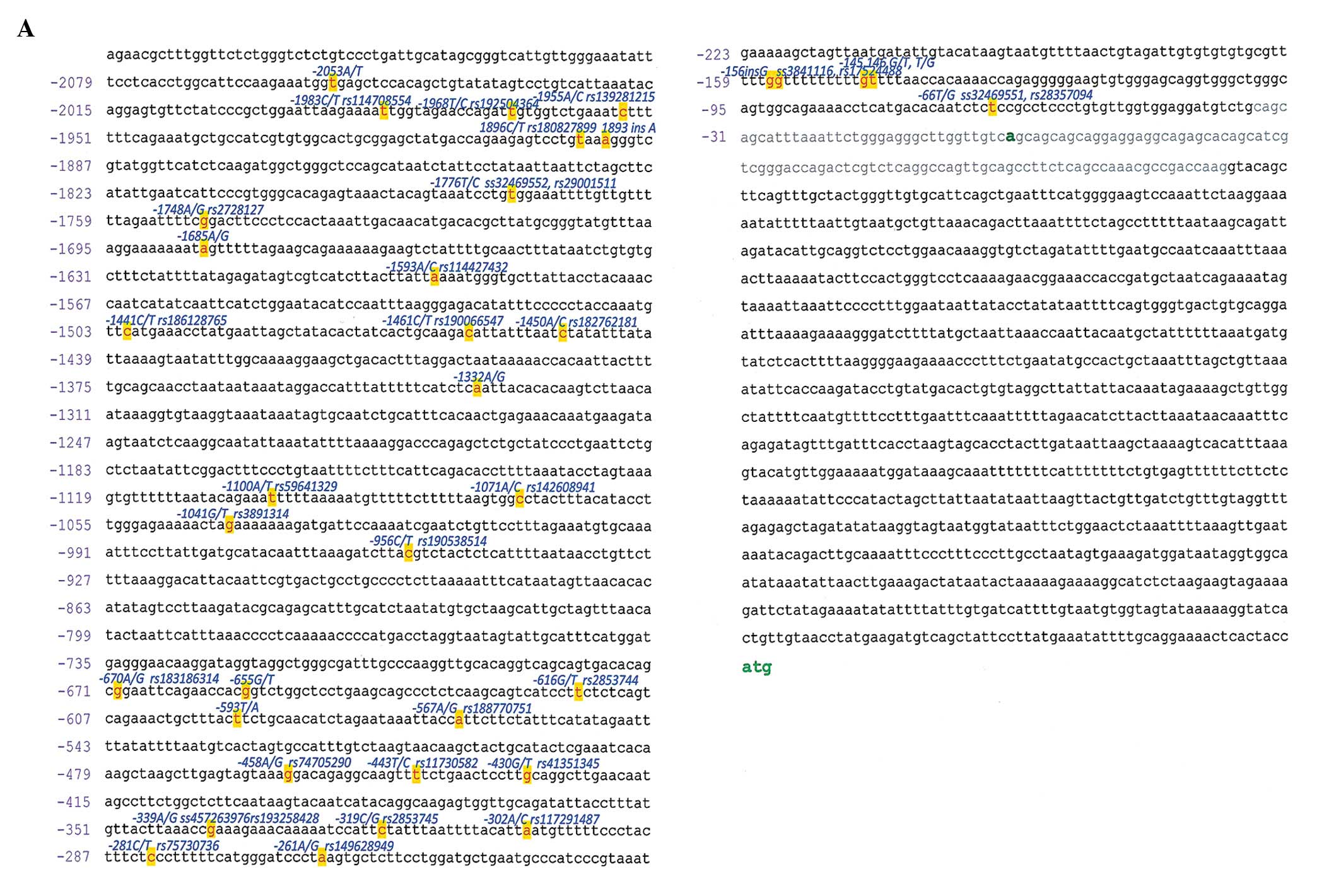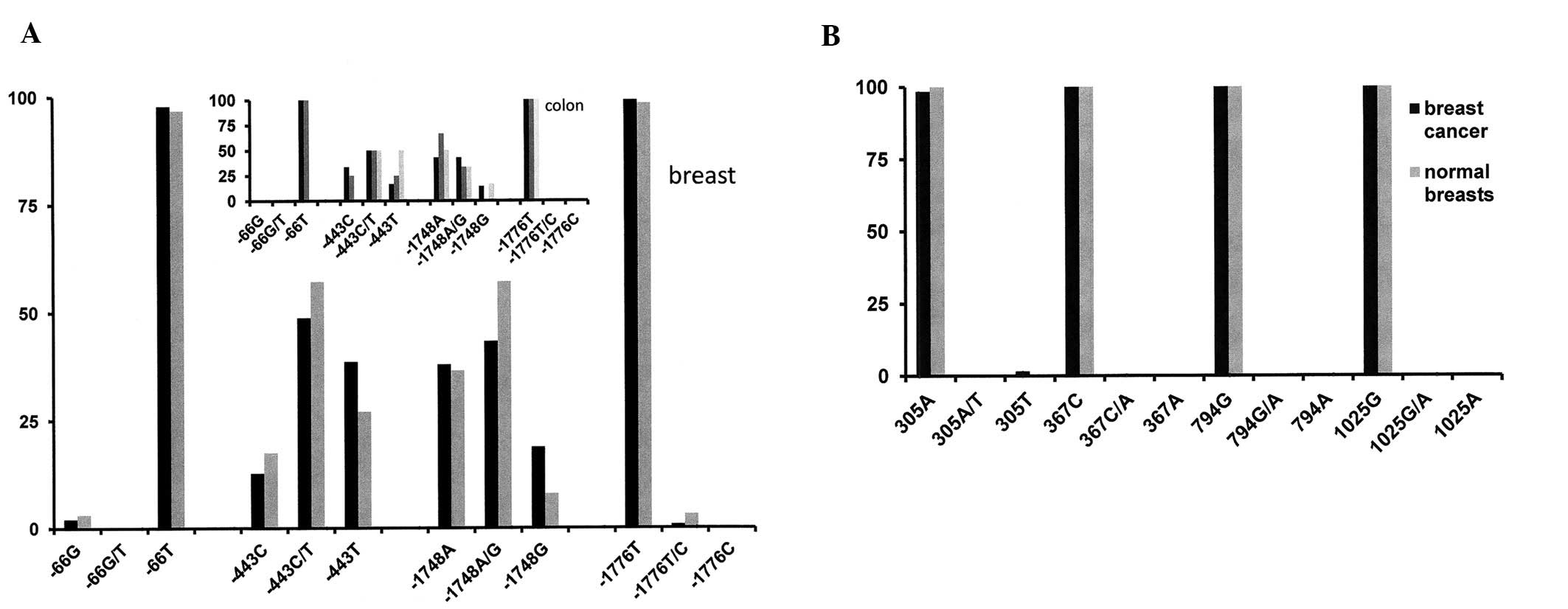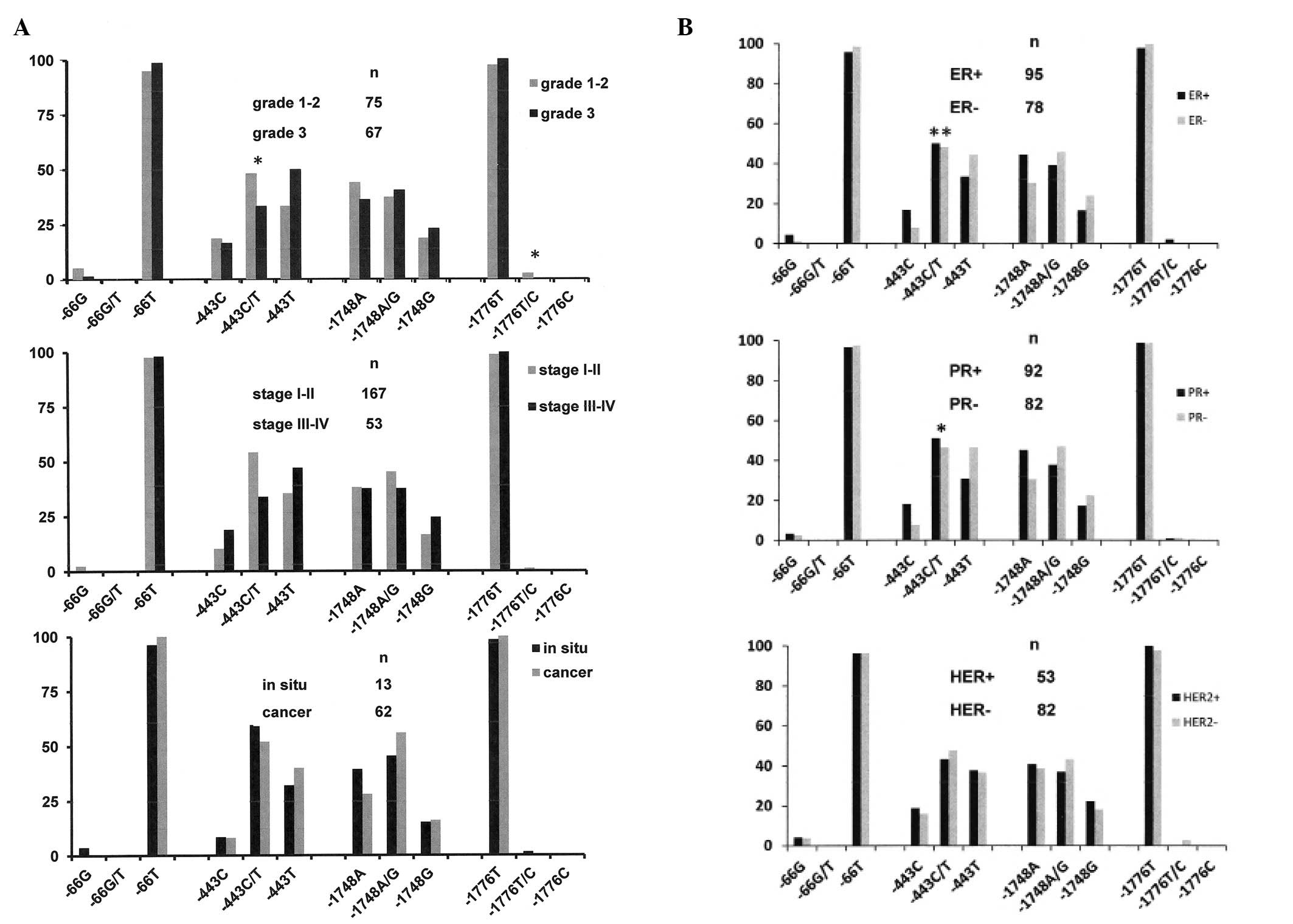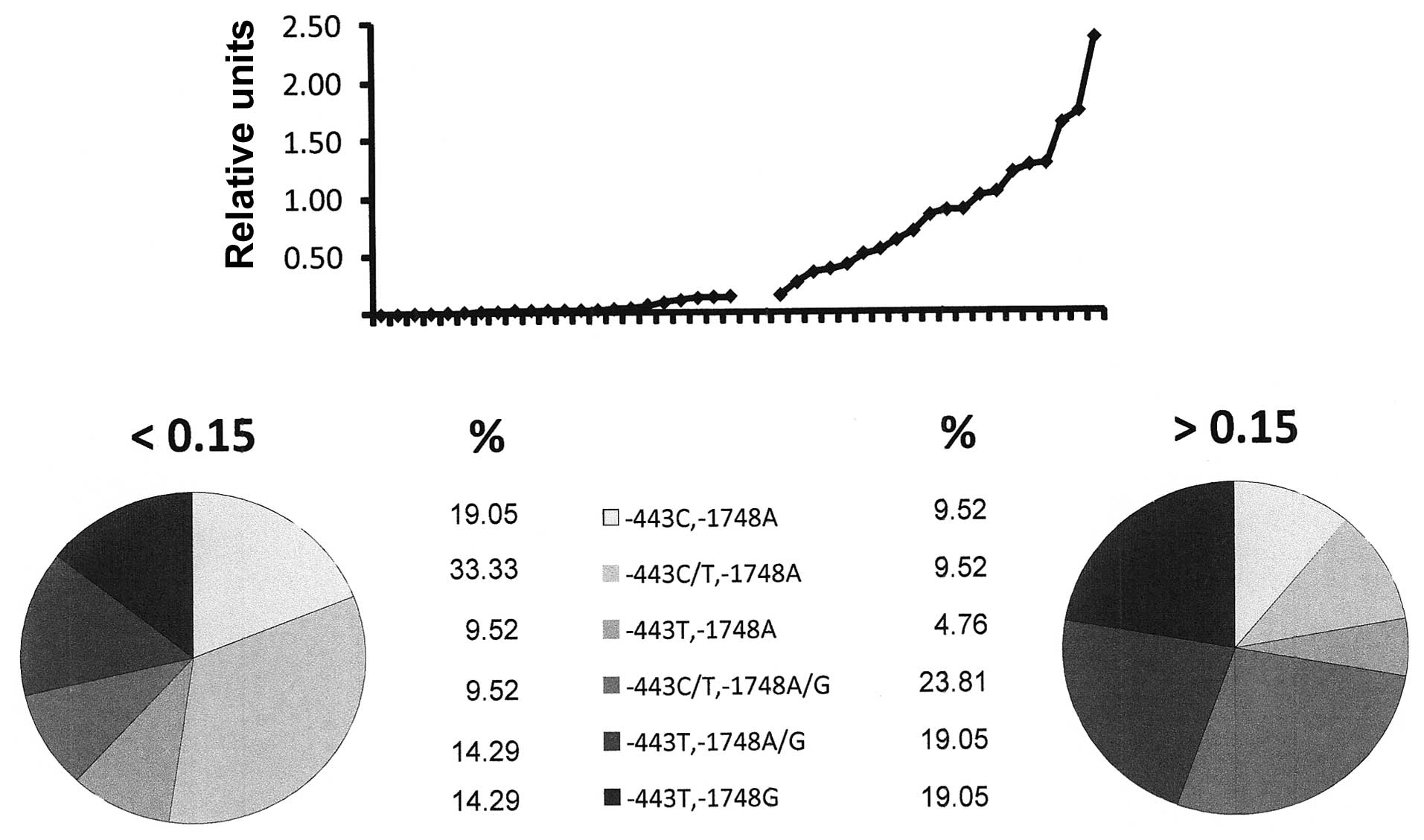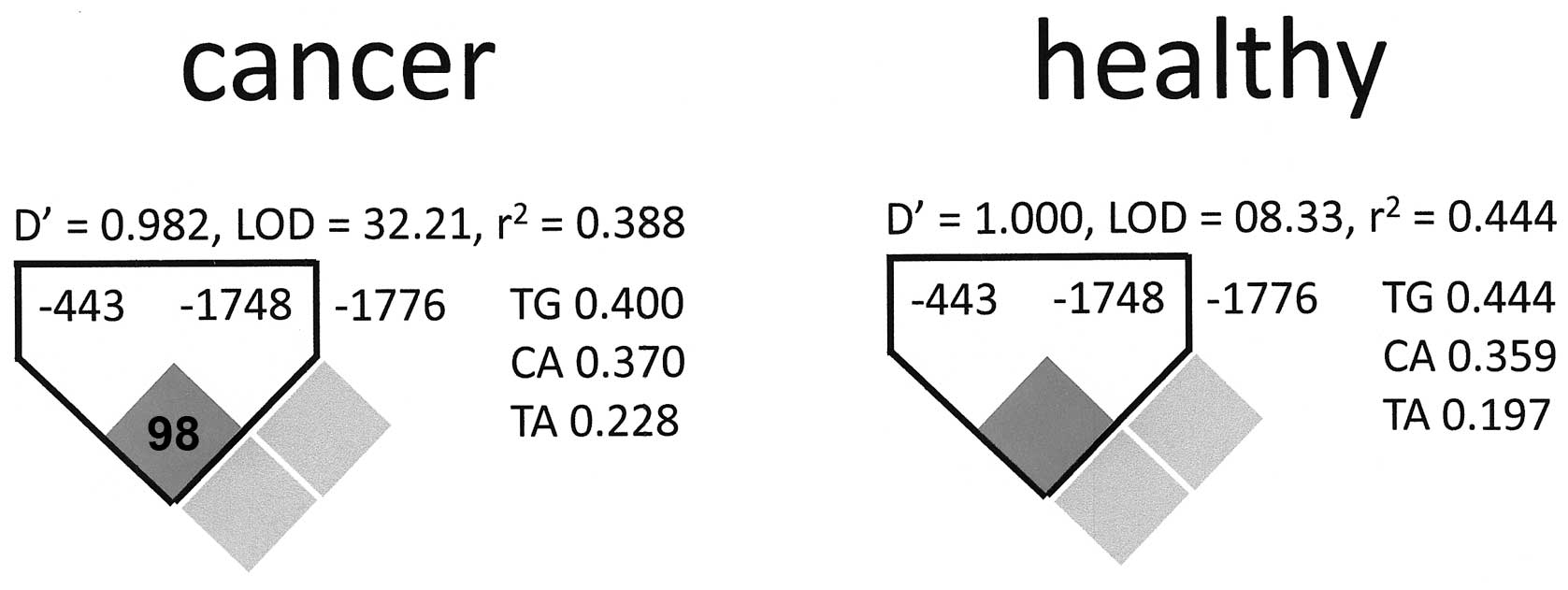|
1
|
Weber GF and Ashkar S: Stress response
genes: the genes that make cancer metastasize. J Mol Med.
78:404–408. 2000. View Article : Google Scholar : PubMed/NCBI
|
|
2
|
Weber GF: Molecular mechanisms of
metastasis. Cancer Lett. 270:181–190. 2008. View Article : Google Scholar
|
|
3
|
Weber GF, Lett S and Haubein N:
Osteopontin is a marker for cancer aggressiveness and patient
survival. Br J Cancer. 103:861–869. 2010. View Article : Google Scholar : PubMed/NCBI
|
|
4
|
Weber GF, Lett GS and Haubein NC:
Categorical meta-analysis of osteopontin as a clinical cancer
marker. Oncol Rep. 25:433–441. 2011. View Article : Google Scholar : PubMed/NCBI
|
|
5
|
Weber GF: The cancer biomarker
osteopontin: combination with other markers. Cancer Genomics
Proteomics. 8:263–288. 2011.PubMed/NCBI
|
|
6
|
Mirza M, Shaughnessy E, Hurley JK,
Vanpatten KA, Pestano GA, He B and Weber GF: Osteopontin-c is a
selective marker for breast cancer. Int J Cancer. 122:889–897.
2008. View Article : Google Scholar : PubMed/NCBI
|
|
7
|
Sullivan J, Blair L, Alnajar A, Aziz T, Ng
CY, Chipitsyna G, Gong Q, Witkiewicz A, Weber GF, Denhardt DT, Yeo
CJ and Arafat HA: Expression of a prometastatic splice variant of
osteopontin, OPNC, in human pancreatic ductal adenocarcinoma.
Surgery. 146:232–240. 2009. View Article : Google Scholar : PubMed/NCBI
|
|
8
|
Tilli TM, Franco VF, Robbs BK, Wanderley
JL, da Silva FR, de Mello KD, Viola JP, Weber GF and Gimba ER:
Osteopontin-c splicing isoform contributes to ovarian cancer
progression. Mol Cancer Res. 9:280–293. 2011. View Article : Google Scholar : PubMed/NCBI
|
|
9
|
He B, Mirza M and Weber GF: An osteopontin
splice variant induces anchorage independence in human breast
cancer cells. Oncogene. 25:2192–2202. 2006. View Article : Google Scholar : PubMed/NCBI
|
|
10
|
Senger DR, Asch BB, Smith BD, Perruzzi CA
and Dvorak HF: A secreted phosphoprotein marker for neoplastic
transformation of both epithelial and fibroblastic cells. Nature.
302:714–715. 1983. View
Article : Google Scholar : PubMed/NCBI
|
|
11
|
Noda M, Yoon K, Prince CW, Butler WT and
Rodan GA: Transcriptional regulation of osteopontin production in
rat osteosarcoma cells by type β transforming growth factor.
J Biol Chem. 263:13916–13921. 1988.PubMed/NCBI
|
|
12
|
Chambers AF, Behrend EI, Wilson SM and
Denhardt DT: Induction of expression of osteopontin (OPN; secreted
phosphoprotein) in metastatic, ras-transformed NIH 3T3 cells.
Anticancer Res. 12:43–47. 1992.PubMed/NCBI
|
|
13
|
Zhang G, He B and Weber GF: Growth factor
signaling induces metastasis genes in transformed cells: molecular
connection between Akt kinase and osteopontin in breast cancer. Mol
Cell Biol. 23:6507–6519. 2003. View Article : Google Scholar
|
|
14
|
Whalen KA, Weber GF, Benjamin TL and
Schaffhausen BS: Polyomavirus middle T antigen induces the
transcription of osteopontin, a gene important for migration of
transformed cells. J Virol. 82:4946–4954. 2008. View Article : Google Scholar : PubMed/NCBI
|
|
15
|
Giacopelli F, Marciano R, Pistorio A,
Catarsi P, Canini S, Karsenty G and Ravazzolo R: Polymorphisms in
the osteopontin promoter affect its transcriptional activity.
Physiol Genomics. 20:87–96. 2004. View Article : Google Scholar : PubMed/NCBI
|
|
16
|
Hummelshoj T, Ryder LP, Madsen HO, Odum N
and Svejgaard A: A functional polymorphism in the Eta-1
promoter is associated with allele specific binding to the
transcription factor Sp1 and elevated gene expression. Mol Immunol.
43:980–986. 2006.PubMed/NCBI
|
|
17
|
Deng QL, Ishii S and Sarai A: Binding site
analysis of c-Myb: screening of potential binding sites by using
the mutation matrix derived from systematic binding affinity
measurements. Nucleic Acids Res. 24:766–774. 1996. View Article : Google Scholar
|
|
18
|
Schultz J, Lorenz P, Ibrahim SM, Kundt G,
Gross G and Kunz M: The functional −443T/C osteopontin promoter
polymorphism influences osteopontin gene expression in melanoma
cells via binding of c-Myb transcription factor. Mol Carcinog.
48:14–23. 2009.
|
|
19
|
Zhao F, Chen X, Meng T, Hao B, Zhang Z and
Zhang G: Genetic polymorphisms in the osteopontin promoter
increases the risk of distance metastasis and death in Chinese
patients with gastric cancer. BMC Cancer. 12:4772012. View Article : Google Scholar : PubMed/NCBI
|
|
20
|
Ashkar S, Weber GF, Panoutsakopoulou V,
Sanchirico ME, Janssen M, Zawaideh S, Rittling S, Denhardt DT,
Glimcher MJ and Cantor H: Eta-1 (osteopontin): an early component
of type-1 (cell-mediated) immunity. Science. 287:860–864. 2000.
View Article : Google Scholar : PubMed/NCBI
|
|
21
|
Shaker OG, Sadik NA and El-Dessouki A:
Single-nucleotide polymorphism in the promoter region of the
osteopontin gene at nucleotide −443 as a marker predicting the
efficacy of pegylated interferon/ribavirin-therapy in Egyptians
patients with chronic hepatitis C. Hum Immunol. 73:1039–1045.
2012.
|
|
22
|
Mochida S, Hashimoto M, Matsui A, Naito M,
Inao M, Nagoshi S, Nagano M, Egashira T, Mishiro S and Fujiwara K:
Genetic polymorphisms in promoter region of osteopontin gene may be
a marker reflecting hepatitis activity in chronic hepatitis C
patients. Biochem Biophys Res Commun. 313:1079–1085. 2004.
View Article : Google Scholar : PubMed/NCBI
|
|
23
|
Cheema BS, Iyengar S, Ahluwalia TS, Kohli
HS, Sharma R, Shah VN, Bhansali A, Sakhuja V and Khullar M:
Association of an Osteopontin gene promoter polymorphism
with susceptibility to diabetic nephropathy in Asian Indians. Clin
Chim Acta. 413:1600–1604. 2012.
|
|
24
|
Trivedi T, Franek BS, Green SL, Kariuki
SN, Kumabe M, Mikolaitis RA, Jolly M, Utset TO and Niewold TB:
Osteopontin alleles are associated with clinical characteristics in
systemic lupus erythematosus. J Biomed Biotechnol. 2011:8025812011.
View Article : Google Scholar : PubMed/NCBI
|
|
25
|
Jiang Y, Yao M, Liu Q and Zhou C: OPN gene
polymorphisms influence the risk of knee OA and OPN levels in
synovial fluid in a Chinese population. Arthritis Res Ther.
15:R32013. View
Article : Google Scholar : PubMed/NCBI
|
|
26
|
Naito M, Matsui A, Inao M, Nagoshi S,
Nagano M, Ito N, Egashira T, Hashimoto M, Mishiro S, Mochida S and
Fujiwara K: SNPs in the promoter region of the osteopontin gene as
a marker predicting the efficacy of interferon-based therapies in
patients with chronic hepatitis C. J Gastroenterol. 40:381–388.
2005. View Article : Google Scholar : PubMed/NCBI
|
|
27
|
Xu G, Sun W, He D, Wang L, Zheng W, Nie H,
Ni L, Zhang D, Li N and Zhang J: Overexpression of osteopontin in
rheumatoid synovial mononuclear cells is associated with joint
inflammation, not with genetic polymorphism. J Rheumatol.
32:410–416. 2005.PubMed/NCBI
|
|
28
|
Gao B, Yasui T, Itoh Y, Li Z, Okada A,
Tozawa K, Hayashi Y and Kohri K: Association of osteopontin gene
haplotypes with nephrolithiasis. Kidney Int. 72:592–598. 2007.
View Article : Google Scholar : PubMed/NCBI
|
|
29
|
Gögebakan B, Igci YZ, Arslan A, Igci M,
Erturhan S, Oztuzcu S, Sen H, Demiryürek S, Arikoglu H, Cengiz B,
Bayraktar R, Yurtseven C, Sarıca K and Demiryürek AT: Association
between the T-593A and C6982T polymorphisms of the osteopontin gene
and risk of developing nephrolithiasis. Arch Med Res. 41:442–448.
2010.PubMed/NCBI
|
|
30
|
Schmidt-Petersen K, Brand E, Telgmann R,
Nicaud V, Hagedorn C, Labreuche J, Dördelmann C, Elbaz A,
Gautier-Bertrand M, Fischer JW, Evans A, Morrison C, Arveiler D,
Stoll M, Amarenco P, Cambien F, Paul M and Brand-Herrmann SM:
Osteopontin gene variation and cardio/cerebrovascular disease
phenotypes. Atherosclerosis. 206:209–215. 2009. View Article : Google Scholar : PubMed/NCBI
|
|
31
|
Hendig D, Arndt M, Szliska C, Kleesiek K
and Götting C: SPP1 promoter polymorphisms: identification
of the first modifier gene for pseudoxanthoma elasticum. Clin Chem.
53:829–836. 2007. View Article : Google Scholar
|
|
32
|
Pegoraro E, Hoffman EP, Piva L, Gavassini
BF, Cagnin S, Ermani M, Bello L, Soraru G, Pacchioni B, Bonifati
MD, Lanfranchi G, Angelini C, Kesari A, Lee I, Gordish-Dressman H,
Devaney JM and McDonald CM; Cooperative International Neuromuscular
Research Group. SPP1 genotype is a determinant of disease severity
in Duchenne muscular dystrophy. Neurology. 76:219–226. 2011.
View Article : Google Scholar
|
|
33
|
de las Fuentes L, Gu CC, Mathews SJ,
Reagan JL, Ruthmann NP, Waggoner AD, Lai CF, Towler DA and
Dávila-Román VG: Osteopontin promoter polymorphism is associated
with increased carotid intima-media thickness. J Am Soc
Echocardiogr. 21:954–960. 2008.PubMed/NCBI
|
|
34
|
Marciano R, D’Annunzio G, Minuto N,
Pasquali L, Santamaria A, Di Duca M, Ravazzolo R and Lorini R:
Association of alleles at polymorphic sites in the osteopontin
encoding gene in young type 1 diabetic patients. Clin Immunol.
131:84–91. 2009. View Article : Google Scholar : PubMed/NCBI
|
|
35
|
D’Alfonso S, Barizzone N, Giordano M,
Chiocchetti A, Magnani C, Castelli L, Indelicato M, Giacopelli F,
Marchini M, Scorza R, Danieli MG, Cappelli M, Migliaresi S,
Bigliardo B, Sabbadini MG, Baldissera E, Galeazzi M, Sebastiani GD,
Minisola G, Ravazzolo R, Dianzani U and Momigliano-Richiardi P: Two
single-nucleotide polymorphisms in the 5′ and 3′ ends of the
osteopontin gene contribute to susceptibility to systemic lupus
erythematosus. Arthritis Rheum. 52:539–547. 2005.
|
|
36
|
Chen J, Wu Q, Lu Y, Xu T, Huang Y, Ribas
J, Ni X, Hu G, Huang F, Zhou L and Lu D: SPP1 promoter
polymorphisms and glioma risk in a Chinese Han population. J Hum
Genet. 55:456–461. 2010. View Article : Google Scholar : PubMed/NCBI
|
|
37
|
Barizzone N, Marchini M, Cappiello F,
Chiocchetti A, Orilieri E, Ferrante D, Corrado L, Mellone S, Scorza
R, Dianzani U and D’Alfonso S: Association of osteopontin
regulatory polymorphisms with systemic sclerosis. Hum Immunol.
72:930–934. 2011. View Article : Google Scholar : PubMed/NCBI
|
|
38
|
Nakayama H, Nagai H, Matsumoto K, Oguro R,
Sugimoto K, Kamide K, Ohishi M, Katsuya T, Okamoto H, Maeda M,
Komamura K, Azuma J, Rakugi H and Fujio Y: Association between
osteopontin promoter variants and diastolic dysfunction in
hypertensive heart in the Japanese population. Hypertens Res.
34:1141–1146. 2011. View Article : Google Scholar : PubMed/NCBI
|















